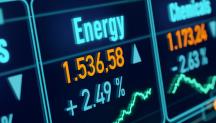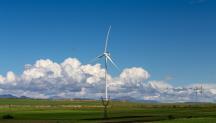

G20, IRENA take on renewable energy at energy ministers meeting
Newsletter
Energy ministers of the G20 and representatives of key intergovernmental organisations, including IRENA, recently met to discuss the G20 energy agenda including the progress that has been made since last October’s adoption of the IRENA-led G20 Toolkit of Voluntary Options for Renewable Energy Deployment — aimed at accelerating the adoption of renewable energy globally.
“Renewable energy offers a technical solution to energy access that meets multiple development goals and does it sustainably and in a climate-friendly way,” said Sakari Oksanen, IRENA Deputy Director-General, speaking at the G20 event in Beijing, China.
The group reiterated their commitment to the UN’s 2030 Agenda for Sustainable Development — to ensure universal access to affordable, reliable, and sustainable and modern energy for all —, and recognised that the Toolkit can help achieve that agenda. “Renewable energy cuts across many of the Global Goals – water, food, health, just to name a few – and is therefore a key element of the Agenda,” said Oksanen.
The Toolkit committed the G20 to take action in five key areas, and at the meeting, IRENA highlighted progress in those key areas:
Cost and cost reduction potentials of renewable energy technologies
“We have seen substantial cost reductions for renewables, making them very competitive with conventional energy,” Oksanen told the group. Solar photovoltaic (PV) energy is now routinely offered for less than 6 US cents per kWh, and wind prices in many auctions have been less than 4 cents per kWh.
Since 2009 the costs of solar PV has reduced by 60%, a result of G20 policies to drive increased deployment, spur technology improvements, and reduce costs in general. It is expected that the cost of renewables will continue to drop in the future, primarily driven by increasing economies of scale, more competitive supply chains, and technology improvements. IRENA’s latest work on renewable energy cost reduction potential suggests that by 2025 the cost of solar photovoltaics could fall by 59%, concentrated solar by 43%, onshore wind by 26% and offshore wind by 35%.
Best policy practices
The Policies and Measures database established by IRENA and the International Energy Agency (IEA) now has over 700 policies from the G20 countries. Significant policy developments have occurred in Argentina, Brazil, China, India, Indonesia, Mexico, Russian, Saudi Arabia, and South Africa. Future efforts include making an in-depth analysis of good practices in policymaking, as well as a new proposed study to look at deployment of renewable energy heating.
In May, Bonn hosted IRENA’s Innovation Week, in which industry experts and stakeholders discussed innovation in the power sector. Identified at the gathering were innovations taking place in the market to enable renewable energy growth – including auctions, regulatory and reliability standards and power purchase agreements.
Financing and risk mitigation
Last week IRENA released a report titled Unlocking Renewable Energy and Investment: the role of risk mitigation and structured finance (you can find a digestible introduction to its contents in a recent newsroom article).
Within it, IRENA recommends the creation of dedicated renewable energy specific risk mitigation facilities to help scale up investments in renewables. In the first half of next year a conference will be held in which experiences can be exchanged on the adoption of finance and risk mitigation policies.
Technology potentials and roadmaps
IRENA’s Roadmap for a Renewable Energy Future (REmap 2030) outlines a plan to double the global share of renewable energy by 2030, that it is cost-effective, economically beneficial, and effective at meeting the commitments of the Paris Agreement and Sustainable Developments Goals. In 2010 G20 renewable energy represented a 10% share and if it maintains its current course will only be 15% by 2030. However this share can be increased by implementing changes in-line with REmap.
With only 14 years left to reach these goals, action is being taken and future plans includes expanding the time horizon from 2030 to 2050 — focusing on reaching the commitments of the Paris Agreement and the de-carbon agenda.
Sustainable modern bioenergy
"Bioenergy accounts for three quarters of renewable energy use today and the non-sustainable uses of biomass need to be rapidly replaced by modern energy," Oksanen told the G20. In 2015 bioenergy increased by roughly 5%, with almost 40% of that capacity in Europe, 30% in Asia, and the rest in North and South America. Though important progress has been made on feedstock availability issues and conversion technologies through boosting biofuels, IRENA believes that systemic innovation to ensure increased availability of sustainable commercial bioenergy, in all its forms, deserves more attention.




